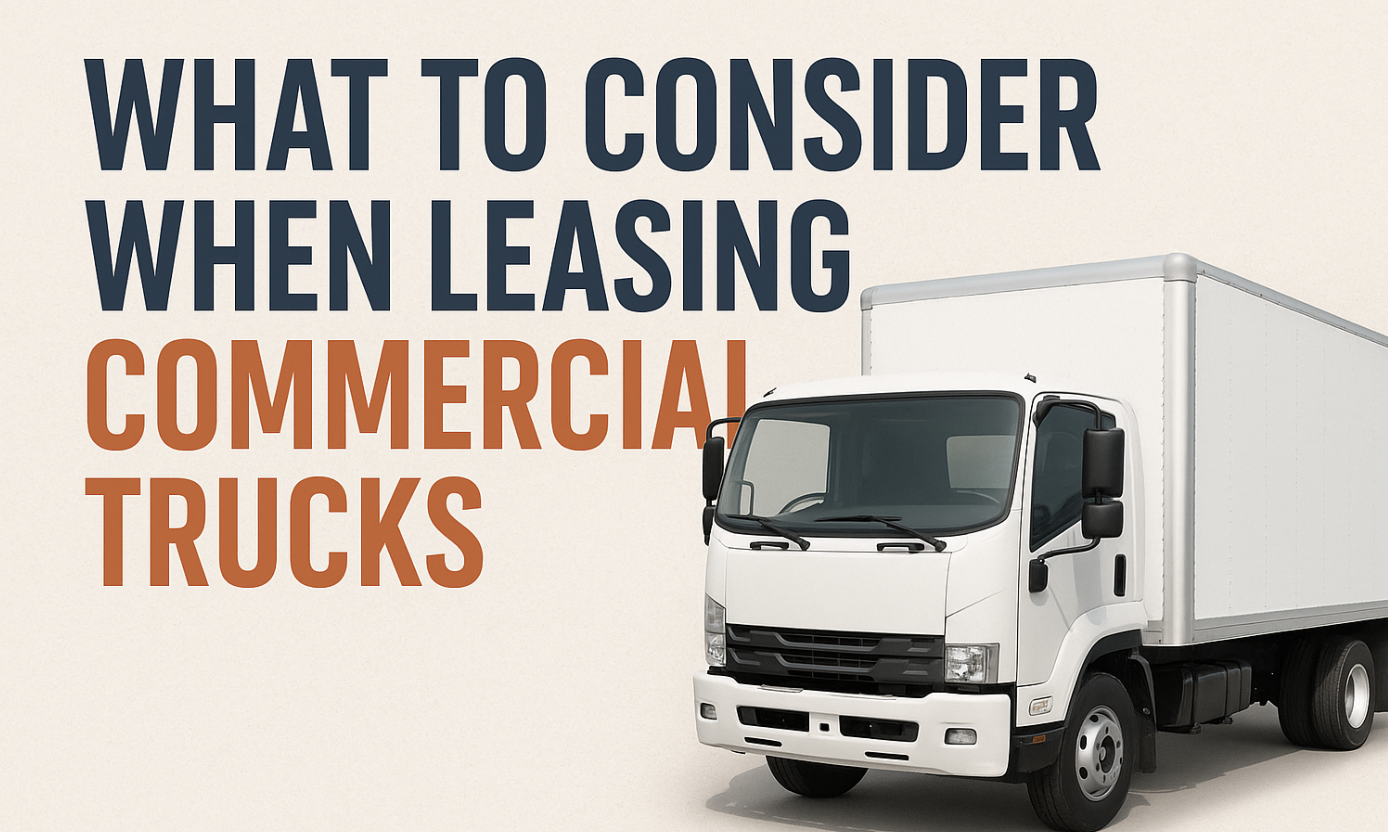Many businesses opt to lease commercial trucks, which can be a brilliant decision. After all, commercial trucks offer significant value. They can provide flexibility, help you manage cash flow, and even keep your fleet up-to-date with the latest vehicles.
However, this can be a big decision that requires careful consideration before the lease agreement is signed and finalized. You must think about your fleet’s total cost of ownership (TCO), which will include all of the direct and indirect costs associated with acquiring, maintaining, and operating your vehicles over time. This goes much further than just the monthly lease payments.
Before you sign the dotted line on the lease agreement, you must consider numerous factors. Fortunately, this post outlines three of the key considerations to think about to ensure your business benefits.
Total Cost of the Lease
When analyzing a truck lease, it can be tempting to focus only on the monthly payments. This is usually the factor that causes businesses to purchase their own vehicles, but that can be even costlier. However, there is much more to think about regarding the total cost of the lease.
You can form a complete financial picture by thinking about:
- Down payment or initial fees
- End-of-lease costs or penalties
- Maintenance and repair responsibilities
- Mileage limits and overage charges
- Monthly lease payments
Leases can differ in whether they include maintenance in the monthly fee or not. You should also factor in fuel efficiency; for example, a less efficient or older truck might cost more in fuel, even if the lease works out cheaper. Be sure to add all of these costs, including insurance, registration fees, and taxes, together to get a clear sense of the actual overall cost.
Lease Terms and Flexibility
All businesses have different goals and needs, and the lease you choose should reflect this. It is essential to review the lease length carefully. Although some companies offer more flexible options, the typical term ranges from two to five years. If your workload can change seasonally, you can ask if seasonal adjustments or short-term leases are available.
It is also worth thinking about whether early termination policies are in place, if lease-to-own options are available, and whether vehicles can be swapped or upgraded during the lease term. This flexibility can be a significant advantage for your business, particularly if demand shifts quickly. This is why you must ensure your lease agreement supports your business’ ability to adapt.
Vehicle Specification and Suitability
To ensure your business is efficient and performs well, you must select an appropriate vehicle. This means thinking very carefully about what the commercial vehicle will be used for. It is crucial to consider the fuel type and efficiency, payload capacity, size and configuration, technology and safety features, and transmission.
The truck you select must suit your specific delivery and hauling needs. While a light-duty pickup won’t be the best choice for hauling heavy construction equipment, you shouldn’t overpay for a heavy-duty vehicle if you only need light-duty capabilities; this would be a waste of money, of course.
Not only that, but misusing the vehicle can also result in increased wear and tear. This is why you must maintain the fleet in an effective manner.
To conclude, there are numerous factors to consider when leasing commercial vehicles. It is crucial that you do this correctly to ensure your business continues to succeed, and this post should help you do just that.

